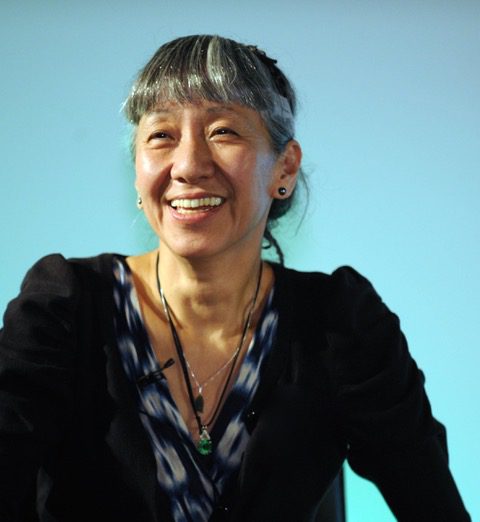Women and Girls and Climate Change
Provocation Piece

JUDY LING WONG CBE
Multicultural Leadership
Women girls and climate change
The death of George Floyd in May 2020 sent a wave of emotion across the world, giving phenomenal impetus to issues of diversity, equality and inclusion. It is a good time to push these themes forward.
In its deepest heart, climate change is a failure of relationship to people and planet. If we care deeply for nature, we cannot damage it the way we do, and if we care deeply for people, we cannot damage them. We need people-centered environmental policy, set within a cooperative culture of caring, embodied in women. Women make up 52% of Scotland’s population and 50% of the world population. We must urgently unleash the full transformative force of the vast missing contribution of girls and women here and across the world. A culture of caring and cooperation will take us towards countering climate change more effectively. On top of this, the local and global context of climate action challenges us to see clearly the pivotal role of diversity, equality and inclusion as we travel the road to COP26 and beyond.
The UK’s ethnic minorities are world ethnic majorities. Through our day-to-day links with family and colleagues in our countries of heritage, we carry impassioned stories of the reality of global injustice across social, cultural, environmental and economic dimensions. As part of the UK community, we spur the UK population to frame world issues as personal.
In December 2020, Scotland released its new Gender Equality Index. Most significantly, Scotland was furthest from full gender equality in the ‘power’ domain, which measures equality between women and men in decision-making positions across the political, economic and social spheres.
Black Lives Matter points to the importance of structures in making change. Action to increase representation within decision-making and power structures must sit at the top of the agenda. We are not at square one. This is the generation of Greta Thunberg and school strikes. There is a rising generation of new young voices. The challenge is to strategically lift them into structures of power and decision-making.
I would like to highlight one great innovative tool – the open database Climate Reframe. About a year ago, Doc Society challenged the media as to why there was no appropriate multicultural presence. Their answer was “Where do you find them?” Doc Society responded by researching 100 of the most established multicultural environmental activists and experts, and put them into an open database. There is now no excuse. This innovative resource is moving the goal posts. Climate Reframe is now used by media, conference and event organisers, and those seeking to broaden the membership of committees, advisory groups and boards. Resourcing such an initiative and creating similar interventions for all disadvantaged groups would be a smart move. The principle is that those most affected can lead most effectively.
The lived experience of ethnic minorities is that we tend to live and work in deprived areas with poorer housing conditions and environmental quality, with more exposure to pollution and a range of impacts from climate change, damaging our life chances in multiple ways. Many of us live with the erosive stress of racism, gender and other forms of discrimination.
Multiple dimensions of social, cultural, environmental and climate injustice all call for action and resources, but an investment in targeting girls and women for leadership roles within structures of power and decision-making is the most significant challenge. Change comes quickly against the right conditions. Given opportunity, girls and women, especially ethnic minority voices, will show the way. I look forward to the release of their vast essential contribution towards climate change action and climate justice across the world.
Judy is a painter, poet and environmentalist, best known as the Honorary President of Black Environment Network (BEN). For 27 years she was the UK Director of BEN, with an international reputation as the pioneer and creator of the field of multi-cultural participation in the built and natural environment. Judy is a major voice on policy and practice towards social inclusion. She is recognised as a visionary advocate for diversity and equality.
She was awarded an OBE for pioneering multicultural environmental participation in 2000, and a CBE for services to heritage in 2007. Recently, she was included in the BBC Power Women List, and the Forbes List of 100 Leading Environmentalists in the UK, Climate Reframe List of 100 best-known UK BAME activists. She was given the Vanity Fair International Women’s Day Challenger Award 2021 and the Earth Day Green Plaque Award 2021.
Her current contribution includes Chair – Green Apprenticeships Advisory Group, supporting the BEIS Green Recovery Taskforce, Member – UKRI Hidden Histories Advisory Group, Member – Weston Communicating Climate Advisory Group. Media Trust, Co-Founder – National Park City Foundation, Member – Living Landscapes Research Steering Group. Royal Society, Member – IUCN/WCPA Urban Conservation Strategies Specialist Group, Member – Aluna Cultural Strategy Development Group, Member – Tree Charter Board, Member – Population Matters Advisory Group, Board member – Botanic Gardens Education Network, Ambassador – Women’s Environmental Network.